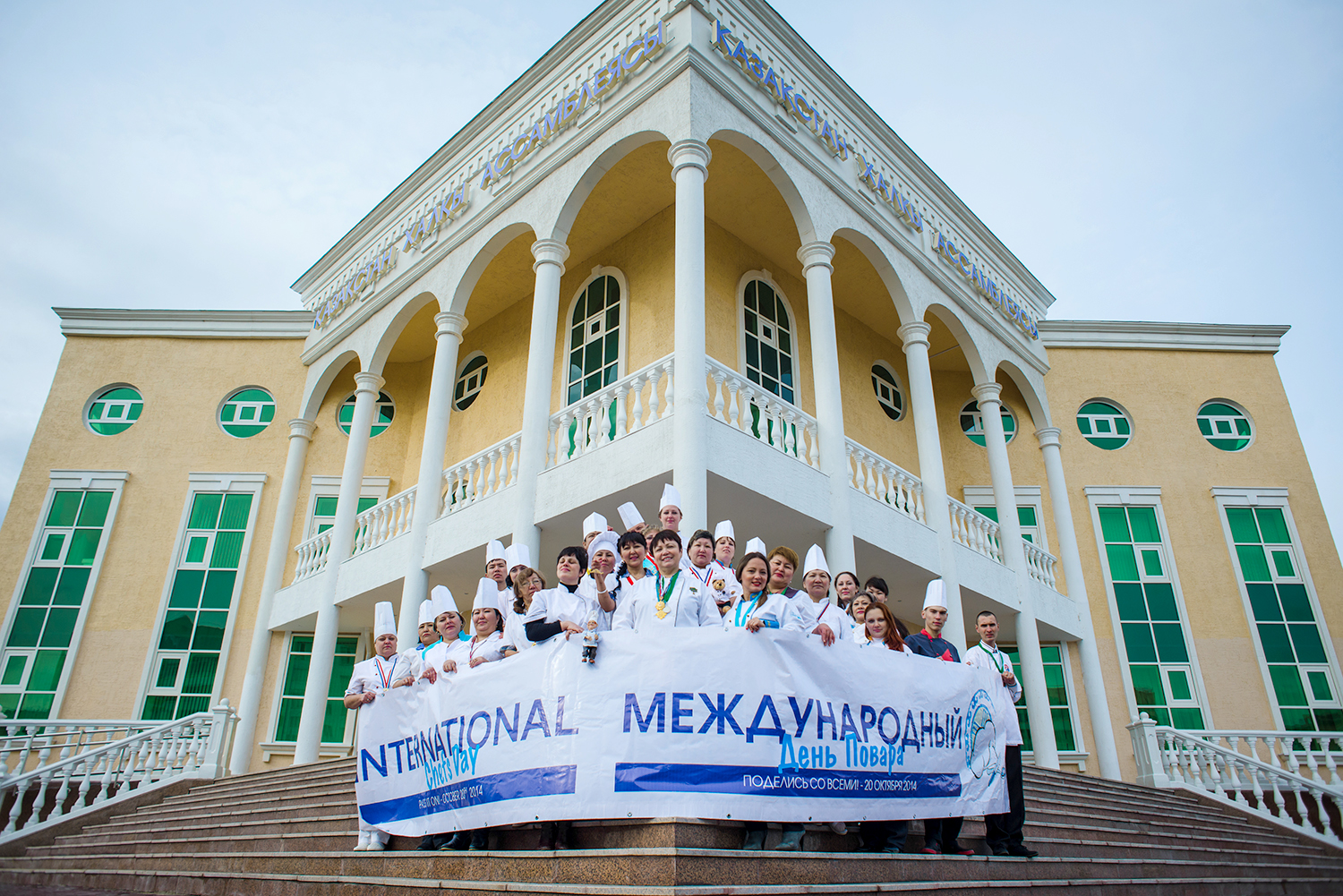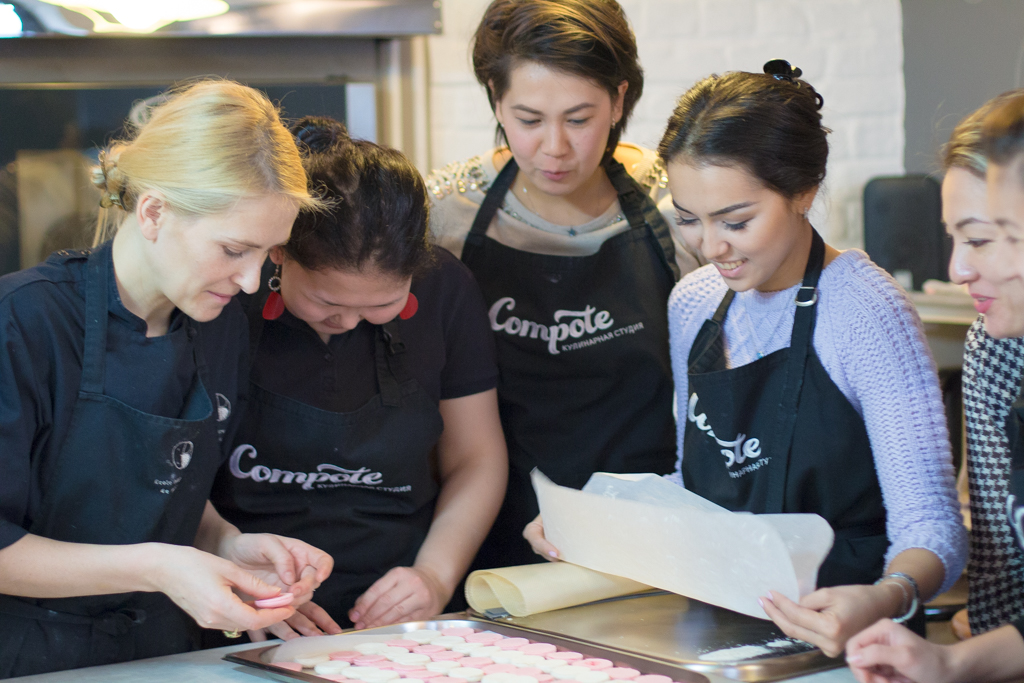ASTANA – As Kazakhstan develops economically and socially, its culture of hospitality is slowly shifting from the domestic realm to the professional, and while cooking professionals say there is still much ground to cover, interest in the culinary arts is growing.
“Culinary arts in the country are growing rapidly, onwards and upwards, especially ahead of EXPO 2017,” President of the Kazakhstan National Culinary Association Yelena Machshinskaya told The Astana Times in a March 10 interview. The National Culinary Association was launched in 2003, she said, and joined the World Association of Culinary Unions in 2008.
While progress has been made, she and other culinary professionals say Kazakhstan’s hospitality industry needs to be taken more seriously. In a recent interview with this newspaper, Marriott Executive Chef Benoit Letellier noted that Kazakhstan’s under-30 generation is starting to respect cooking as a profession, but there is still a mentality that the service industry in general is not a real career path. “In many countries, you are a professional waiter. You can build a career as a waiter and obviously advance, become managers, et cetera. But here, there isn’t this building of a career as a service professional,” he commented.
Machshinskaya would agree. “Our association engages in a lot of work to enhance the prestige of the profession of chef in the country, especially among young people. The prestige and involvement of young talent in the profession are pressing challenges for food and hospitality industry,” she said.
The National Culinary Association works with colleges to train cooking and catering specialists in Kokshetau, Schuchinsk, Karaganda and Astana. “The main problem of most educational institutions is that they do not consider training for the hospitality industry as a whole,” Machshinskaya commented. But hospitality is a powerful industry now, she said, and includes a huge range of activities, from tourism and entertainment to hotel services, catering, sightseeing, event planning and more. “Educational institutions should be focused on precise training for the industry as a whole; then the level of training would be much higher,” Machshinskaya said.
“Since the culture of food in Kazakhstan and especially in Astana was born only recently, there is still a lot of space for improvement,” Rixos President Executive Chef Oreste Mancini told The Astana Times on March 12. Rixos works with the College of Service and Food Service Professional Lyceum No. 2, he explained. “There are a lot of young cooks that join us every year, but unfortunately usually the school can give only basic knowledge and the rest is hard work and experience not only in Kazakhstan but worldwide. I put a lot of effort into training all my staff in all aspects of kitchen operations,” he said.
Of course, as restaurants and hotels open in the Kazakh capital, they provide opportunities for young Kazakh chefs to work in demanding kitchens with international staff. “At the moment, there are huge opportunities for young cooks who want to learn to be better and get jobs in the best places in the city, since they are actively seeking staff,” said Mancini, who has worked in Astana since October 2014.
With Kazakhstan increasing its contact with the rest of the world almost daily through new flights, new international events and a growing tourist industry, an increased mutual interest in food seems inevitable and aspiring professionals aren’t the only ones interested in building their skills in the kitchen. As new ingredients become available, home cooks in the country are also keen to expand their culinary horizons.
“Yes, indeed, cooking is becoming more popular,” Co-director of Almaty’s Compote Cooking Studio Zau Abisheva told The Astana Times on March 6. “We can now purchase many exotic products, so preparing some exotic meals is now possible. Moreover, people don’t just want to go to restaurants, they also want to understand what they eat. All this enhances our interest in cooking.”
Compote opened in September 2012. “The idea was to establish a useful and attractive place for citizens who would like to learn something new and enhance their cooking knowledge during workshops with the participation of various chefs and cooks. It was high time, as the interest for cooking was pretty high, but no experts could offer their skills,” Abisheva said.
Compote mostly offers one-day workshops on cuisines ranging from Italian to Japanese, Abisheva said, plus confectionery classes, kids’ classes, courses for more advanced chefs, wine tastings and lectures. They also do team building activities, parties and other events, which all in all have drawn about 5,000 participants, Abisheva said. “Our classes are meant only for amateurs. Yes, our workshops with famous chefs can be interesting for professionals, but our main audience unites people who just like cooking.”
For the three years they’ve been in business, “the culinary arts have become more popular, but no dramatic changes can be mentioned. It is changing slightly and gradually,” the co-director said.
The celebrity chef craze sweeping North America and Europe doesn’t seem to have reached Kazakhstan yet. “Unfortunately, there are no such trends in Kazakhstan yet – if the cook has a name, it is only in professional circles, among colleagues,” Machshinskaya said. “Of course, restaurateurs and chefs aspire to this – to organise workshops to share experiences, professional communication, make a name for themselves – but it is more common in Almaty, [and] Astana, where the range of consumers is large enough.”
While Abisheva notes that local food traditions are “simple and modest,” Machshinskaya also pointed out that Kazakhstan, as a multicultural nation, is home to a huge variety of “national” food. “The President gave an entire street for restaurants of national cuisines in Astana: Kazakh, Uzbek, Russian, Georgian, Italian, Chinese, Korean. This is a great idea for a country where more than 130 nationalities live,” she said.
The National Culinary Association is working on a framework for the development of the hospitality industry in Kazakhstan and forming policy in the education and development of professional hospitality staff, among other activities. They also host festivals of national food in Kazakhstan and represent the country in international culinary competitions. “It helps not only to share experiences, but also to acquaint the world with the hospitality of the Kazakh people and with the traditions of national cuisine,” Machshinskaya said.



